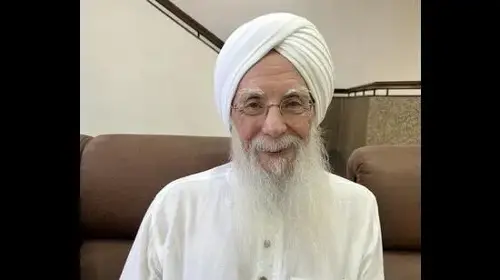
Stress and emotions can be regulated within minutes with yoga, said Dr Sat Bir Singh Khalsa, an associate professor at Harvard Medical School, USA, on Wednesday.
He was delivering a lecture at Post-Graduate Institute of Medical Education & Research’s (PGIMER) Nehru hospital on the topic “The science and research of yoga for sleep and insomnia”. The lecture was organised by the neurology department and CCRYN-Yoga centre.
Further elaborating he said that continuous Yoga practice brings about long-term changes, including resilience and tolerance towards stress and increase in emotional equanimity. Yoga practitioners have increased ability to maintain their stress levels and emotional functioning over longer-term practice. This is the overall psychological level of efficacy, he added.
Stress and unregulated emotions are at the heart of most mental health conditions, he said adding that Yoga reduces the risk factor of these diseases.
Dr Sat Bir explained that traditional yoga includes four components --physical exercise (asana), breathing exercise (pranayam), deep relaxation and meditation. The holistic approach of yoga helps in regulating the internal functioning of a body both physically and psychologically which is virtually missing in modern medicine, he said.
In yoga, the patient is capable of making a change in their internal functioning by him/herself but modern medicine is yet to have this, said Dr Khalsa.
Having worked on sleep and circadian rhythm research since 1985 in the division of sleep medicine at Harvard Medical School, Dr Khalsa explained sleep is a biological need and an active process and complex in terms of its regulation. The two major problems related to it are sleep deficiency - not getting an ample amount of sleep--and the inability to initiate sleep which is insomnia. A consensus panel of all leading yoga, sleep researchers has considered seven hours or more per night sleep on a regular basis for adults.
Psychological and neurological factors, primary sleep disorder are some of the causes of insomnia. Dr Khalsa focussed on behavioural treatment for insomnia that include cognitive behavioural therapy and relaxation therapy. Yoga and meditation fall under relaxation therapy. Dr Khalsa suggested integrating yoga and meditation along with cognitive behavioural therapy for insomnia (CBT-I) can help achieve better results in treating chronic insomnia. In his study titled “Treatment of chronic primary sleep onset insomnia with Kundalini Yoga: A randomised trial with active sleep hygiene comparison”, it was noticed that yoga practices help in sleep duration in addition to sleep efficiency, quality and other measures. Sleep duration was missing from CBT-I. Therefore Yoga can be integrated with CBT- I to get positive results in eliminating chronic insomnia.
Box
Symptoms of Insomnia
Taking more than 30 minutes to sleep
Being awake in the middle of the night greater than 30 minutes
Frequency of both the above factor should be three times a week
Significant daytime impairment